#sharing knowledge
Explore tagged Tumblr posts
Text
Hi!!
I've been practicing witchcraft for about five years and have yet to see a specific place where witches can freely exchange information so that's what I'm hoping to do here!
A few things about me I'd consider myself a chaos leaning witch, my practice tends to lack structure, and I include a lot of things that are both personal and general knowledge. I'm a college student majoring in Studio Arts and Biology. I have a cat, bunny, cockatiel, and tarantula. I struggle with multiple mental health issues, and I use witchcraft AND medicine to help live with them!
I'm happy to answer any questions and share my knowledge!
21 notes
·
View notes
Text
Sigils
So over the last year I've starting practicing a little more seriously, learning what I can about different styles and elements of the craft so I can build my own practice. It's been a lot of fun.
One of the things that's really caught my attention is sigil work, which honestly is just really cool. But there seems to be a bit of a disagreement between practitioners, and I'm hoping y'all might be able to illuminate the situation.
Some folk have offered their own sigils for others to use, sometimes with instructions and sometimes without. Under most circumstances it seems like the expectation is to draw, charge, and activate the sigil in your own preferred way.
But others have said (quite vehemently in some cases) that using other people's sigils either won't work or might invite unexpected effects due to the user not knowing what intentions the sigil's creator put into it. These folk have stated that sigils will not work unless you create them for yourself.
And then on yet another side of this, most sources I can find about making your own sigils are positive or even encouraging about making use of designs, shapes, and colors that have personal significance for you, which seems to mean that I might take and repurpose another design into a sigil for my own use and that would be fine.
Obviously one Tumblr thread is not going to resolve this ongoing clash, but I'd love to hear your opinions, if you have them.
5 notes
·
View notes
Text
I was showing a friend my spell recipe card designs, and she asked me why I didn't do step-by-step instructions for the magic portion of the recipes. I include tips, tricks, and ideas, as well as correspondence information, but I don't provide a one-two-three guide for casting the spells, even in the long-form posts. My reasoning for this is twofold:
First of all, the recipe cards are intended mostly for practitioners who already have a basis for their magical practices. Folks who have paradigms in place and ways of doing their magics. They're friendly enough for newer practitioners, with room to interpret, add, remove, and grow. They're spells in and of themselves, yes, but they're also prompts.
Even in commissions, where I provide extra context, tips, and instructions, I leave it to the practitioner to form the full ritual. I make mention of where I suggest including certain words or actions, and I note when to focus or rest, but... it's up to the reader to interpret that. My way isn't going to be your way, and so instructions written too specifically won't apply anymore. I don't want you to practice my magic, I want to inspire you to practice your magic.
Secondly... I use this magic. I'm a folk practitioner. Many of these recipes are spells I cast and use. I'm not going to give out all of my secrets. I'll share some techniques and ideas of where to include magic, but if I were to provide full, step-by-step instructions, it would end up as a recreation of my own workings. And that's a no-no to me. I leave out additional ingredients, steps, incantations, and techniques on purpose. I add extra tidbits that I don't actually use but that still make sense in context.
No spellwork that you see posted here (or anywhere) is 100% accurate to life. Partly because I want my work to inspire others to create their own paths, but also to protect my own magics. It doesn't make sense to share my most closely-guarded secrets. Why on earth would I give out the keys to undoing all my hard work?
Information, I think, should be shared. Communities can't thrive if we're all siloed completely away from each other. It's good to write guides and recipes and books; it's good to share tidbits and tips and tricks; it's good to provide context and help others understand and build on each others' works. It's important, even.
But at the same time, there are some things that are best kept hidden to yourself. You can't just post whatever on the internet and believe there will be no consequences. Some things should be private, and it's up to each of us to decide where to draw that line.
#aese speaks#magic#witchcraft#witchblr#keeping secrets#sharing knowledge#timely thoughts based on a post i saw this afternoon#thought i'd. throw my 2 cents in
33 notes
·
View notes
Text
The internet is pretty cool
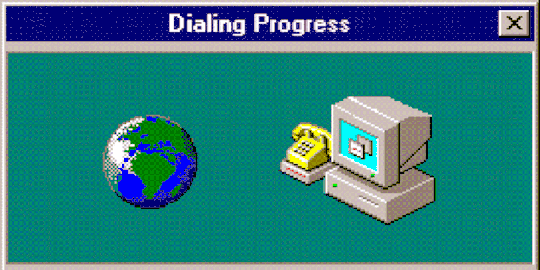
Twitter is a hellscape. I mean that literally. It has always been, but fuck has it gotten worse since Elmo took over.
Facebook is not any better, for that matter. (Accidental poetry for the win!) There is a reason so many boomers got radicalized into some conspiracy bullshit via facebook.
Youtube is slowly drowning in the adpocalypse.
And tumblr... Has most certainly its own issues, though I gotta say that after getting used to the place it seems the most sane place of all the internet.
And I guess reddit... Trudges along.
So, Web 2.0 in general though... Kinda sucks.
Yet, I am currently basically chatting on a daily basis with a Japanese friend, who has studied Japanese history and will ramble about said Japanese history to me all day long. And then I will chat to friends in Berlin and talk about social movements in Germany. Maybe I am then also discussing stuff with friends from the USA or from Brazil. And we will share our knowledge. There are forums on Solarpunk. There are places for people to organize.
Even the fucking hellscape that is twitter most certainly made it so, that marginalized voices that have been ignored for decades got finally more room.
And that... is kinda awesome, isn't it?
If I have a question, there is a good chance I will be able to answer it by googling it. Or by just going to Wikipedia or SciHub. There is so much knowledge accessible. Or I can just ask the question at some place and get it answered.
And... like. That was kinda what the internet was supposed to be, right?
It was supposed to be a place for knowledge to be shared. I mean, it originally connected universities for heaven's sake. And when it does that, it is kinda a fucking amazing place.
And all I am thinking is... we kinda need to find a way to take the internet back from big companies.
No, I do not know how. But... It somehow has to work, right? The internet should not be in a chokehold by a handful of quasi-monopolistic companies. It should just be a place where you could properly share your knowledge with other people. A place for folks to connect.
I really do not know how to get there. But... It needs to happen, God darn it.

#internet#internet culture#the internet is awesome#connecting people#knowledge#sharing knowledge#solarpunk#anarchism
98 notes
·
View notes
Text

38 notes
·
View notes
Text

2 notes
·
View notes
Text
Simplifying Sustainability
While I was gazing the sky from a bench in the park heard "akka" (sister), to my right was a tiny tot with her science book. Then came her mum complaining me that she flunked her science exam. The girl immediately said "I don't understand science". The furious science enthusiast in me took up the role of her teacher for the day. The topic was - SUSTAINABILITY.
Mind talk - 'How can I? Probably it will take a day or two for her to learn the spelling it self'. But I will and here I go.
Me - Sustainability is all about changes or adjustments we make to help look after our mother Earth.
She - What changes?
Me – How did you come to the park?
She – Mumma bought me on her bike.
Me – How does a bike run?
She – Petrol.
Me – Where does the petrol come from?
She – From the fuel station.
Me – Ha-ha… how do fuel stations have it?
Puzzled her...
Me – We extract petrol from the crude oils found under the ground called fossil fuels. Once you burn them, they won’t come back. If we use them uncontrollably then by the time you grow up, the entire petrol is finished. Then what will you do?
She – What will I do? (Sad and shocked)
Me – You should start saving from now. You should walk or cycle instead of bike. Likewise, there are few other changes we can make to support our planet Earth like- Rain water harvesting, recycling, repurposing, composting, planting trees, saving energy, using solar power, reduce plastic usage, use more public transportation, save water, maintain ecosystem balance, etc.
She – Now I understand susaiability!
Me – Its SUSTAINABILITY.
She – Yes. S-U-S-T-A-IN-ABI-LI-T-Y.
Me – Yes. Very good!!
As she saw her friends entering, she lands the book in her mum’s lap and run in the playground. I hope she understood sustainability at least a little.
5 notes
·
View notes
Text
What happened in archaeology during the 20th century? - Part 2
As mentioned in the previous article, during the time before 1960 in the 20th century, the focus was on methodological improvements in archaeology. From 1960 on, the focus was on theoretical improvements in archaeology. This does not mean that the 1960s marked a clear line between methodological and theoretical development in archaeology. This means the majority of events and concerns in the discipline were slightly different before and after 1960.
What happened in archaeology after 1960s?
From 1960 on, archaeology transformed into a new version of itself. We refer to it as “New Archaeology”. So, the birth of new archaeology is the main thing that happened in archaeology after 1960.
What is New Archaeology?
In new archaeology, the main focus is on studying the cultural processes of past human societies. As you may remember, in the background era of archaeology, the focus was to discover the legendary cities of the past. In the Renaissance era, the focus was to collect antiquities and study the history of antiquity. Then, in the 19th century, the focus was on studying the history of humans and their culture. Again, in the 20th century before 1960, the focus was the same. Then, only after 1960, scholars started to study how human cultures were born, evolved, and changed.
In simple words, before this new archaeology, what archaeologists studied were random and independent events in the past related to humans. But with new archaeology, they studied how those events in history connected with each other. They studied how both intentional and accidental acts of human ancestors have shaped their culture. How did the things that past humans did as well as the things that happened to past humans shape the cultures of past humans? They examined. So, as archaeologists focused on this process of birth and evolution of cultures, we call this processual archaeology.
Read full article on New Archaeology: Processual Archaeology at kamalsjournal.com
Other than the birth of New Archaeology, there were a few important events and trends that occurred after the 1960s, as listed below:
Scholars like Lewis Binford introduced new theories that resulted the emergence of new archaeology
Gordon Childe had introduced his theory of the Neolithic Revolution, explaining how human ancestors domesticated animals and plants. He said that after the domestication of animals and plants, establishing settlements and making pottery took place in order. Archaeology became the scientific discipline to test these theories.
The extensive use of technology to analyse and interpret data
Studies transformed into problem-oriented studies. Scholars began to conduct studies to find answers to research questions.
The studies focused on providing more rational conclusions than ever.
Archaeologists introduced Rescue archaeology, or salvage archaeology, to save archaeological monuments and sites as warfare and development projects were causing huge destruction to them Soon, Archaeological Impact assessments became a necessity before development projects.
In 1970, scholars introduced cultural resource management to protect valuable archaeological sites and monuments. Then, they introduced archaeological heritage management and cultural heritage management too.
So, the new archaeology is an upgrade of archaeology that emerged in the 1960s with better theories and methods, focusing on studying the cultural processes of the human past through material data.
What Happened in Archaeology After 1980?
After 1980, the new archaeology was questioned, and a new version emerged, named post-processual archaeology. Scholars like Ian Hodder introduced new theories for archaeology. This age was literally a period of theoretical reform in archaeology. In order to understand archaeology in this age, the characteristics of new archaeology and post-processual archaeology can be compared.
The new archaeology focused on quantitative results. Post-processual archaeology focused on qualitative results.
The new archaeology was pessimistic. Post-processual archaeology was optimistic. In new archaeology, it was believed that past human cultures were never able to be reconstructed with the limited data found in archaeology. In post-processual archaeology, the approach was optimistic regarding the matter.
New archaeology focused on the processes that were behind creating antiquities. Post-processual archaeology focuses on the culture behind antiquities.
The new archaeology focused on explaining past landscapes as cultural processes. Post-processual archaeology focuses on cultural or cognitive aspects of past human beings.
New archaeology considered that past incidents happened that way because of external factors such as environmental conditions, and things only changed when the environment changed. But post-processual archaeology considers the choices made by humans in the formation of history.
New archaeology looked into the past from the same point of view as we look into the present. But post-processual archaeology looked at the past from different perspectives.
New archaeology tried to understand the past as patterns of social, economic, and political anomalies, but post-processual archaeology tries to understand the past as a collection of individual anomalies. As an example, in new archaeology, it will be said that the Stone Age is followed by the Bronze Age, and the Bronze Age is followed by the Iron Age as a pattern, with some minor exceptions, due to the nature of the impact from the environment. But, in post-processual archaeology, it will be specific with the place and time where and when the Stone Age was followed by which, either bronze, copper, or iron, considering the individuality of incidents and trends that occurred in the history of mankind due to the cognition of mankind, not the environment.
Read full article on Post-Processual Archaeology at kamalsjournal.com
Summary
As discussed above, the discipline of archaeology, which had already emerged in the 19th century, was developed further as a science in the 20th century. In the first six decades of the 20th century, the use of technology extensively developed archaeology as a science in practical ways, such as chemical dating methods.
Then, in the 1960s, the theoretical evolution of archaeology took place. Rather than explaining the story behind antiquities, the past human cultural process was studied with the use of antiquities, marking the first origin of the form of archaeology we have today, which is ‘studying through material data’. And also, archaeological heritage management was introduced to have standards for dealing with archaeologically important heritage.
Then, in the 1980s, with post-processual archaeology, the approach to archaeological studies changed. Earlier, mankind’s cognition was neglected when recreating the past through material remains. There, the environment was considered the force of evolution. Simply put, it said that human culture had changed due to environmental changes. But, in post-processual archaeology, it was said that human culture changed mainly due to the intelligence humans had. As humans, we could choose whatever we wanted with our intelligence. Further, it emphasised that the past is not a pattern but a collection of various occurrences that happened at various times and in various places individually.
As of today, the archaeology we refer to is this post-processual archaeology. So, this is the long process of the origin of archaeology. However, there is an ongoing, never-ending debate about processual archaeology vs. post-processual archaeology.
At this point, if you read all seven articles, I am sure you probably get the same image in your head as I do when I hear “History of Archaeology”. And now, most probably, you have your own idea of the origin of archaeology too.
#archaeoblr#archaeology#archaeologist#archaeology for all#archaeology student#origin of archaeology#history of archaeology#20th century archaeology#archaeology in the 20th century#archaeology in the 60s#archaeology in the 80s#new archaeology#processual archaeology#post-processual archaeology#kamalsjournal#chanakakamal#empowering curiosity#inspiring understanding#sharing knowledge#academic blog
3 notes
·
View notes
Text
hi gang. reminder that we are some of the best sweaters in the animal kingdom (second only to equines) allowing us to stay cool and keep moving in hot weather. we have 10 times the density of sweat glands compared to other great apes.
we are ALSO insanely good at smelling rain (specifically geosmin, found in the soil and activated by rain) with the ability to smell 10 parts per trillion. this is speculated to have helped our ancestors survive!
we ALSO have absolutely batshit diets compared to most other animals. caffeine and chocolate are completely toxic to most animals but we can eat it without even feeling sick. even avocados are severely toxic to many animals to the point where it can be fatal to eat, but humans love it!!!
we are ALSO some of the best endurance runners ON EARTH out of ANY other species. we can beat horses in endurance running. you know, the animals that gradually evolved away most of their toes in order to be the best runners?? yeahhh.
and to top it all off. our lifespan is unusually long for our species' weight/mass. in many cases, the bigger a species is, the longer its average lifespan (e.g. domestic mice live for 1-3 years, bowhead whales can live over 200) but we're very small for how long our average lifespan is. big cats like tigers live around 14-15 years, brown bears 25 years, yet here we are expected to live around 75-85 years. that is NUTS.
humans as a species are so extremely cool. it's not just our intellect that makes us amazing. we may not be the fastest or the strongest in the animal kingdom but we're super cool in many other ways. next time you sweat you can go wow!!! humans are so cool I'm able to keep moving because of my absolutely insane number of sweat glands! thank you evolution!
#thought sharing my favourite animal facts about humans would be fun :3#listen to my gibberish boy#yes the lifespan thing is partially due to medicine and improved knowledge but its GOING IN THERE REGARDLESS!!!!#death mention
33K notes
·
View notes
Text
Learning
I have a question
Or maybe four,
Just trying to understand,
Hoping to learn more.
That isn't an answer,
You taught me that,
It's a justification,
Come on, don't be a brat.
We're all trying to learn,
To get better somehow,
There's not some knowledge turn,
Where you forget when we learn.
Share what you know
And we'll share ours,
That way we'd all grow,
Isn't that fair?
0 notes
Text
This 1000% threw me back to when friends would swap burned cds at school. Hell I still own my first one.
On another note I also still have one of my cassettes that I used to record music from the radio 😂

HOLD THE LINE!! KEEP PUSHING!!!!!
185K notes
·
View notes
Text
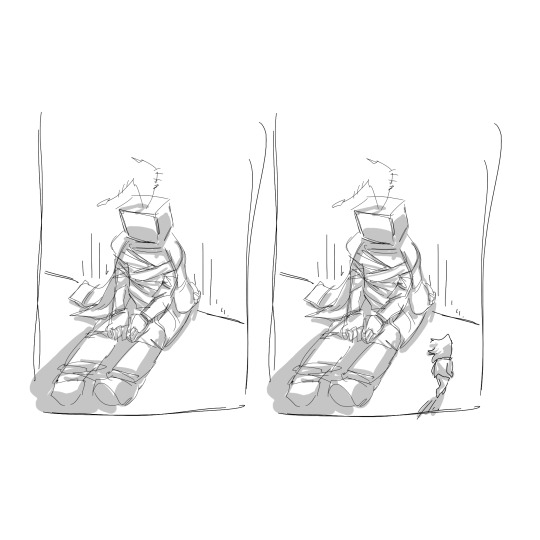
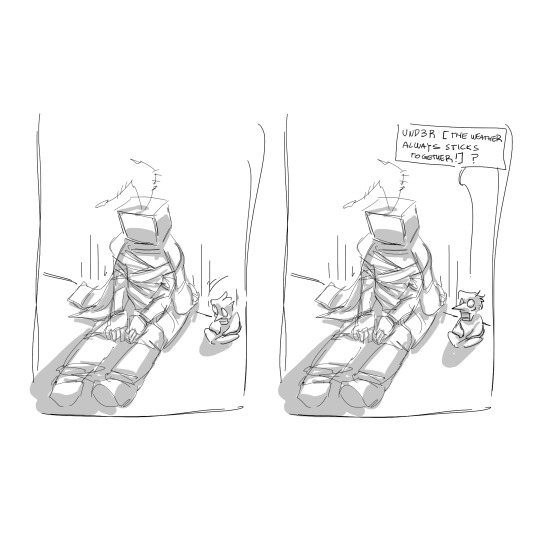
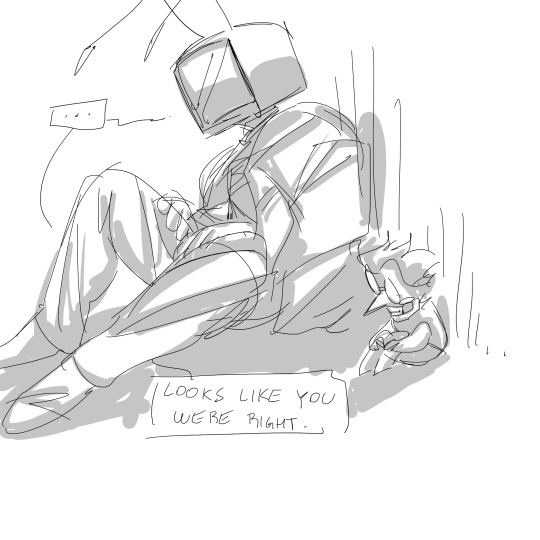
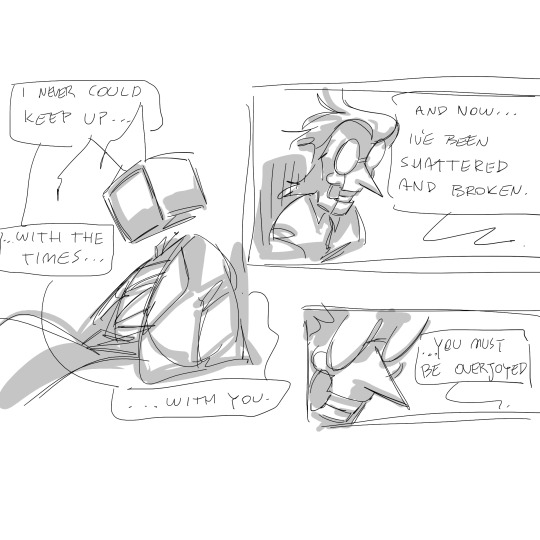
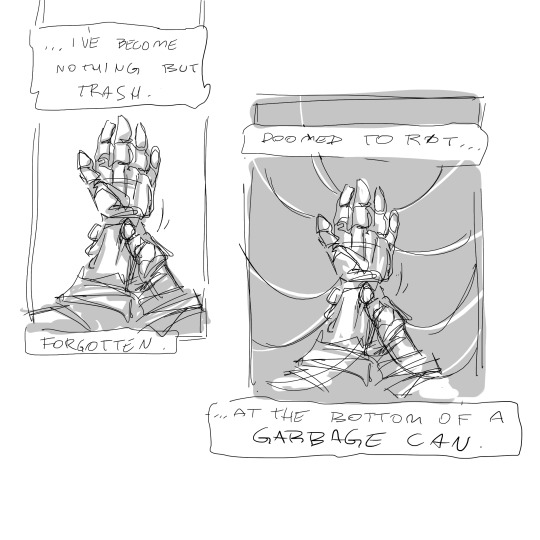
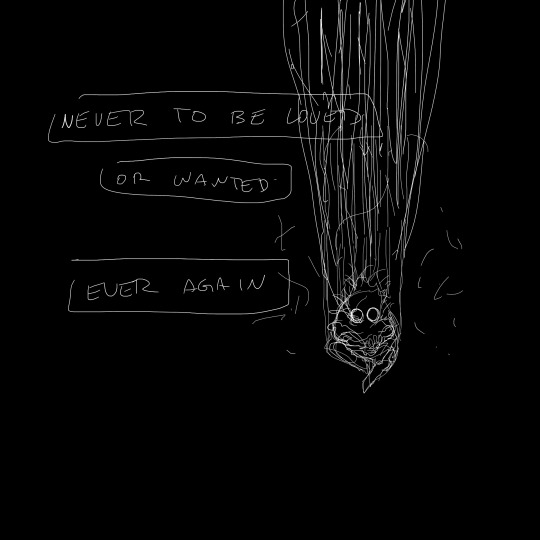
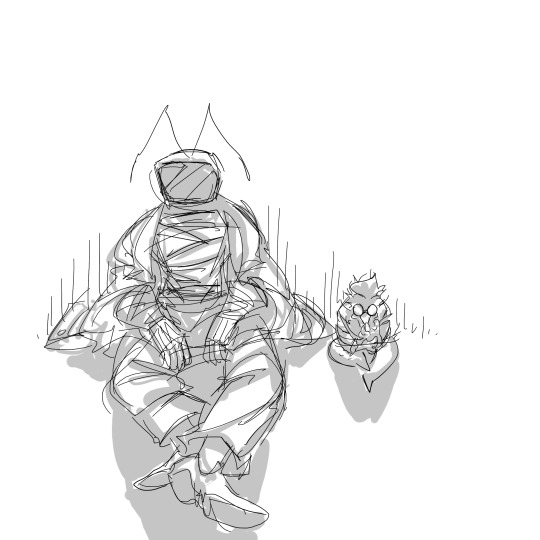
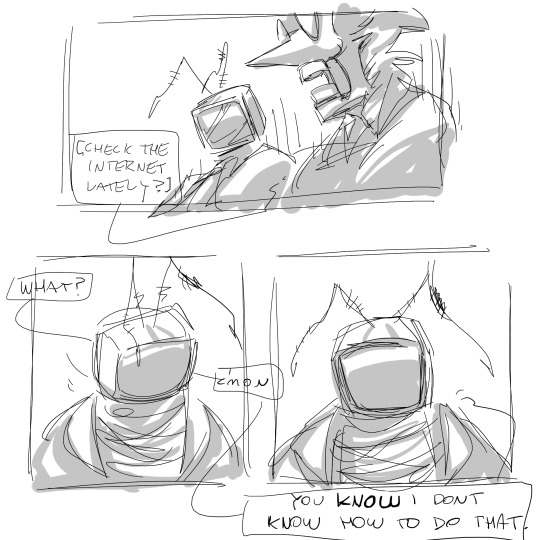
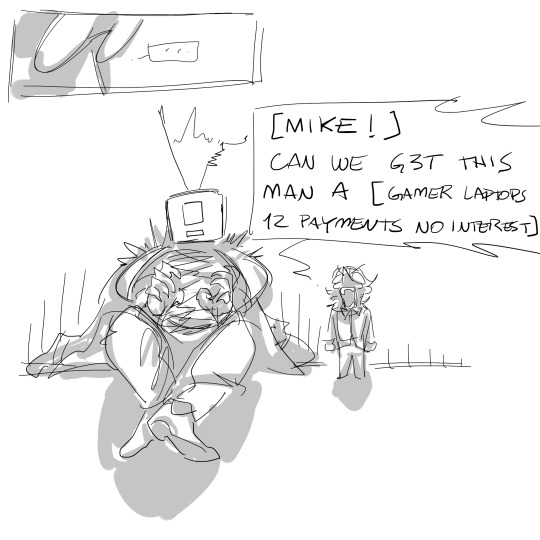
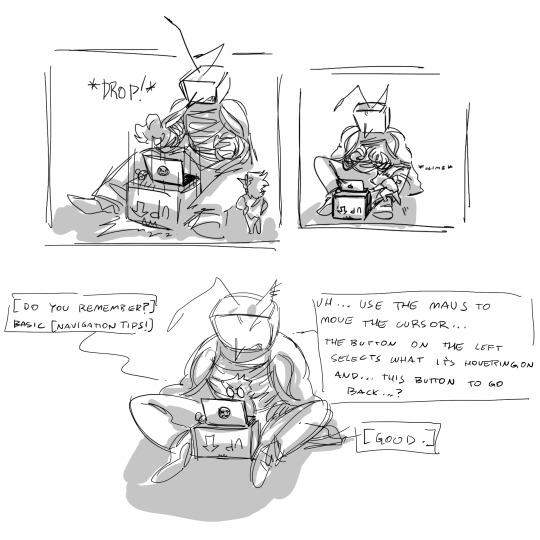
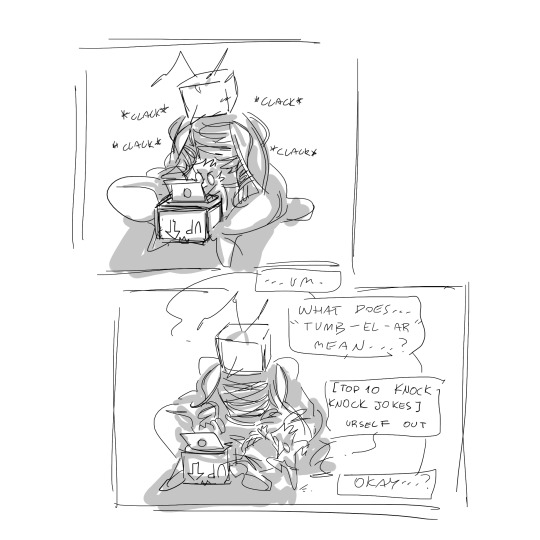

spamton puts some knowledge to good use
#deltarune#tenna#spamton#spamtenna#ant tenna#spamton g spamton#kris dreemurr#deltarune chapter 3 spoilers#if you notice the quality slowly declining from the first panel to the last no you dont#'tenna should look at what people are posting about him on tumblr' but i made it angsty somehow lol#spamton having forbidden eldritch knowledge about our world and being able to achieve some level of interaction with it#kinda like gaster seems to have#hes aware of his own status as a sexyman. he might as well share this phenomena with another sexyman that needs the boost-#-more than he ever will#you dont have to read that deep into it though this is mostly just my thought process for this ksjadhks#WHOOPS got a bit too meta again. sorry i have thoughts about this kinda thing heheheh
3K notes
·
View notes
Text

Saw this post on Instagram with a link to a Drive that contains hundreds of books about Palestine and Israel and they asked for it to be shared so I thought I'd post it here as well.
Link to the Drive: link
1 note
·
View note
Text
Steve and Eddie who kind of flop in life and end up poor, living in a trailer in a different small town living quiet lives of no import.
The kids, Robin, Nancy, and Johnathan all seem to take the small handful of opportunities offered to them by the government in the aftermath of the Upsidedown to take off and make something of their lives. They're off writing headlines, making news, and living their lives to the best of their abilities, but Steve and Eddie find themselves stuck.
Steve stayed in Hawkins until the kids graduated and left for college. By then Nancy, Johnathan, and Robin are all in their second or third years of college. John and Nancy have their own apartment in New York together and don't reach out all that often, only seeing the rest of the Hawkins crew on Holidays and some vacations. Robin is flourishing at an all-women's college in Maine and has a partner and a cat and plans for graduate school brewing. She's always saying Steve can come out and join her whenever he's ready, but when the time comes it feels like he would just be trying to insert himself in the middle of a life he doesn't know how to fit into, so he turns to Eddie instead.
Eddie is permanently disabled in a number of ways following the events of season four. He struggles with chronic pain, has breathing issues due to the loss of part of his right lung, and lost enough muscle mass in his left leg that walking will never be easy or done without the use of a walker or arm bar crutches. The doctors said he recovered as well as he could have. The kids said he would get better with time. Wayne said it didn't matter if he never got better, he could do anything he set his mind to.
Steve is the only person who tells him the truth.
Steve tells him that it sucks. Tells him that it will probably always hurt. Doesn't give him false hope when he's trying to grieve the loss of the life he wanted to live. The goals he wanted to reach. When he falls deeper and deeper into himself, stuck in the muck of depression, Steve is the only person he lets in. The kids try their best but their lives are moving fast, and taking care of someone like Eddie is exhausting, no matter what they try to say. Eventually, everyone but Dustin gives up on reaching out, the younger boy showing up every Sunday to try and get Eddie out of the house. He always leaves disappointed.
When Steve asks him if he wants to use what's left of their partly government payouts and Steve's equally meager Family Video savings to buy a truly shitty trailer in a town an hour and a half south of Hawkins in the fall of 1990, it feels like the first boon he's been given in almost five years. He'll never be who he could have been if he had ignored Chrissy that day in 86', but he's always thought maybe he could be more than a ghost between Wayne's walls if he could just get out of this god-forsaken town full of people who know too much and too little of what's happened to him.
They get the trailer, pack what little they have, let Wayne hug them close, and leave.
Steve has already transferred to their new town's Family Video, moving up to claim the dubious honor of being the opening manager. Mostly he just unlocks the door, signs into the computer, and makes sure nothing catches fire. Eddie hoped that moving would miraculously make him fit to enter back into the world, but he spends most of his days with a blanket on the front porch, watching people pass by. He does, though, finally accept that he needs to apply for disability to help Steve keep the lights on and the water hot. That last little bit of hope that he could be what he used to be dies, but he's learning to be content with what he does have. He starts taking a walk, just ten minutes around the loop of the trailer park saying hi and trading polite nods with his fellow residents. He's not ok, but he's starting to build a new community of people not too different from himself.
The new trailer only has one bedroom. Eddie sleeps on a fold-out mattress in the living room. It had been a major argument when they first moved in with Steve insisting that Eddie needed the bed. Eddie argued that it wasn't fair for him to take the room when Steve was the one working 40 hours a week to keep them afloat. In the end, Eddie was the more stubborn of the two. It helps that Eddie has absolutely no qualms about crawling into bed with Steve on the nights when the couch bed really won't cut it for his aching body. Steve never questions it, just shuffles over a little and lets the other man in.
Steve doesn't question a lot of stuff.
He doesn't question when all their effects are shared between them with no effort to distinguish between yours and mine, Eddie's and Steve's. He doesn't question it four months in when Eddie starts to get his feet under him and decides to take up cooking, always trying his best to have everything done just as Steve walks through the door. He doesn't question when a good chunk of Eddie's first disability check goes to buying Steve a sturdy, if not very fashionable, new watch for his birthday since his old one went bust almost a year ago.
He doesn't question it when Eddie holds his hand for the first time under the stars hanging above their front porch.
He doesn't question it when Eddie introduces him to one of his new neighbor friends with a hand resting comfortably on his lower back
He doesn't question it when Eddie starts sleeping in the bedroom every night.
Or makes him box mix cupcakes for Valentine's Day.
Or kisses him for the first time on the couch that's never a bed unless they want to spend the day binge-watching bargain bin films.
Because really, isn't this how it was always going to go? Wasn't this exactly what Steve was asking for when he asked Eddie to skip town with him?
Isn't this what Eddie was hoping for when he said yes?
#From the perspective of someone who grew up poor#I've always found comfort in the knowledge#that I would never be expected to do something great#which means#that I get to project that onto the sillies#steddie#fanfiction#plot bunny#eddie munson#steve harrington#dreamer speaks#stranger things#One again I ask myself#is this anything?#insert shrug emoji#Edit: This ended up being something#thank you to everyone#who commented or wrote in the tags#for sharing your stories with me#it means a lot#that people are connecting with this one
2K notes
·
View notes
Text




The only mansplainer i’ll allow
#I feel like he wouldn’t do it on purpose though#he just likes sharing his knowledge#our favorite yapper <3#i need him#BADLY#spencer reid#criminal minds#spencer reid x reader#spencer reid fluff#pretty boy#matthew gray gubler#bau team
1K notes
·
View notes